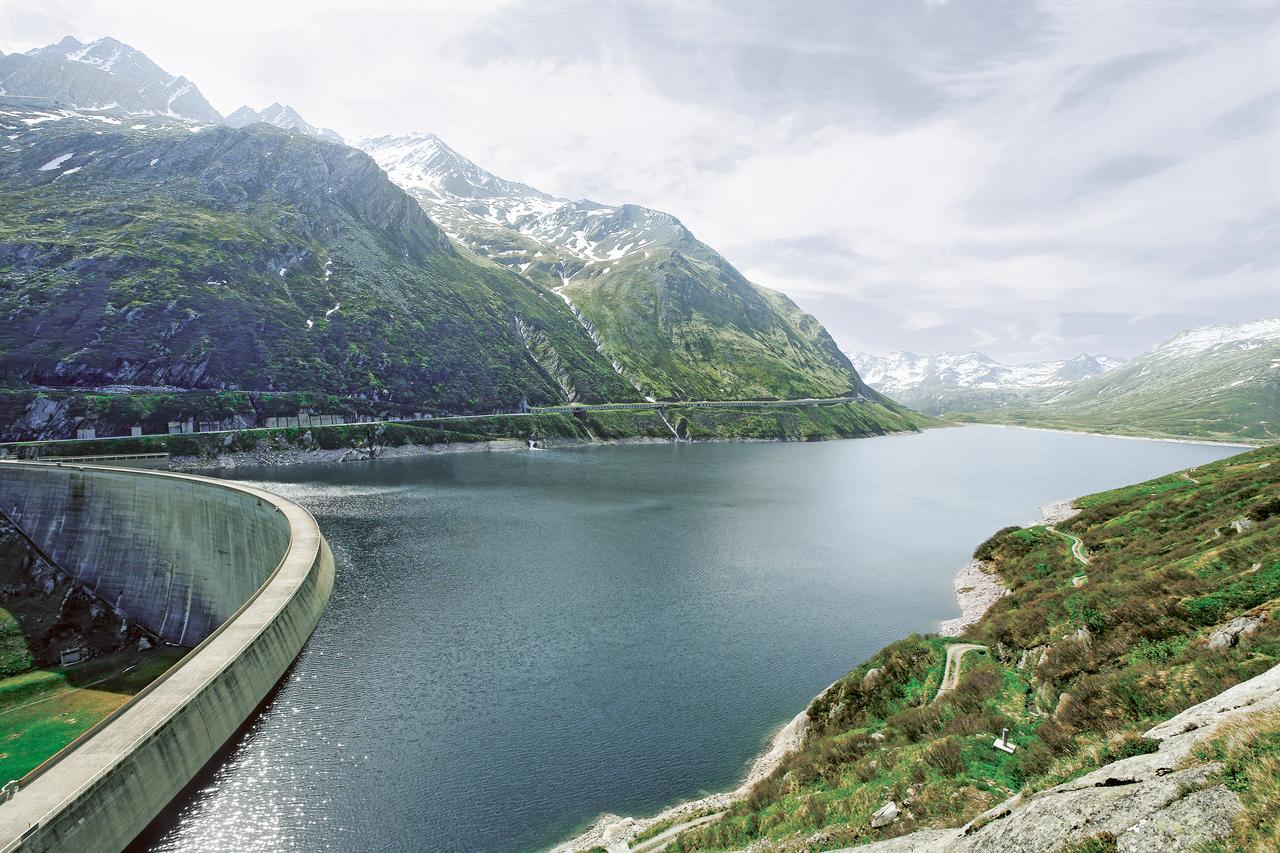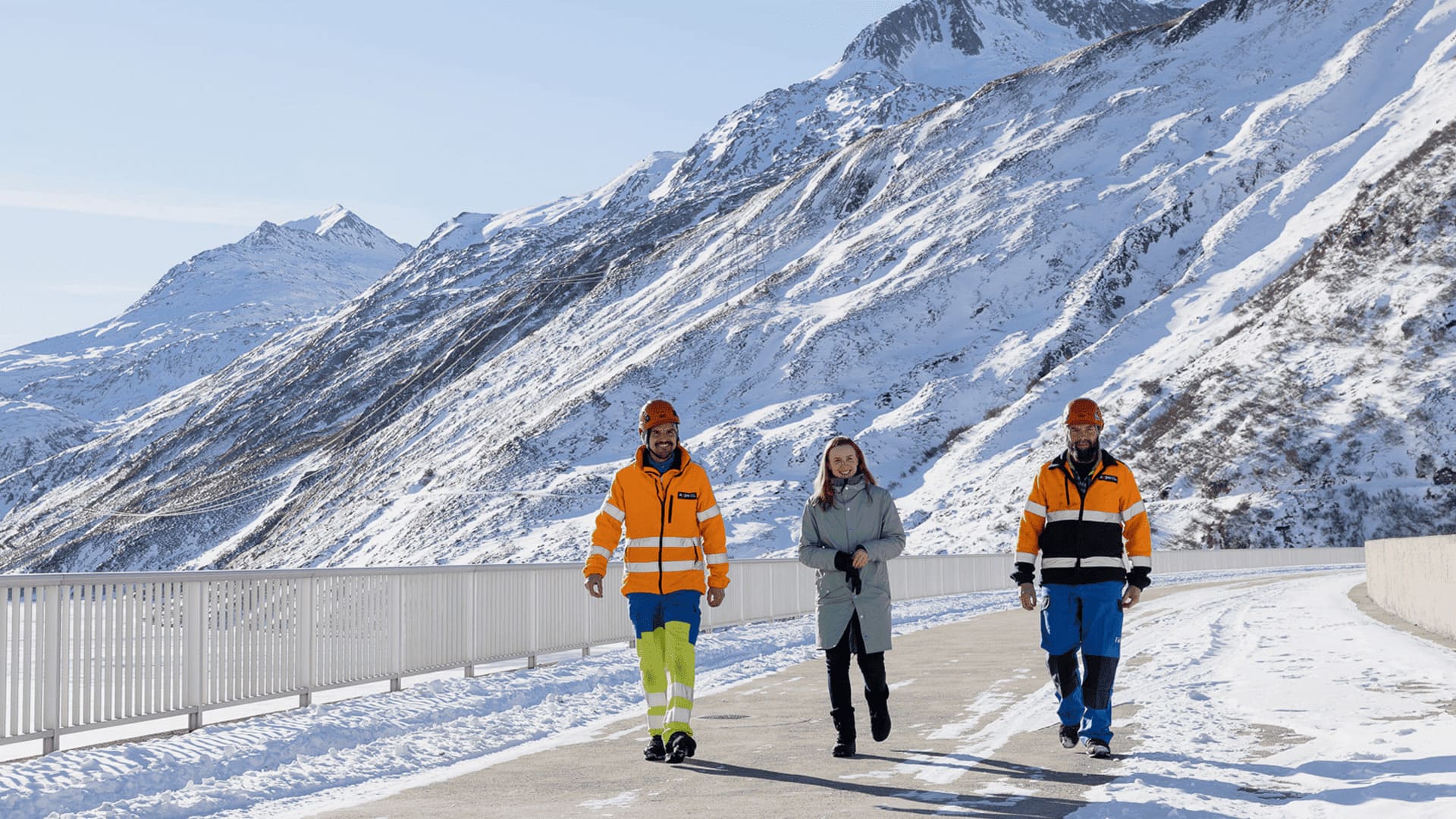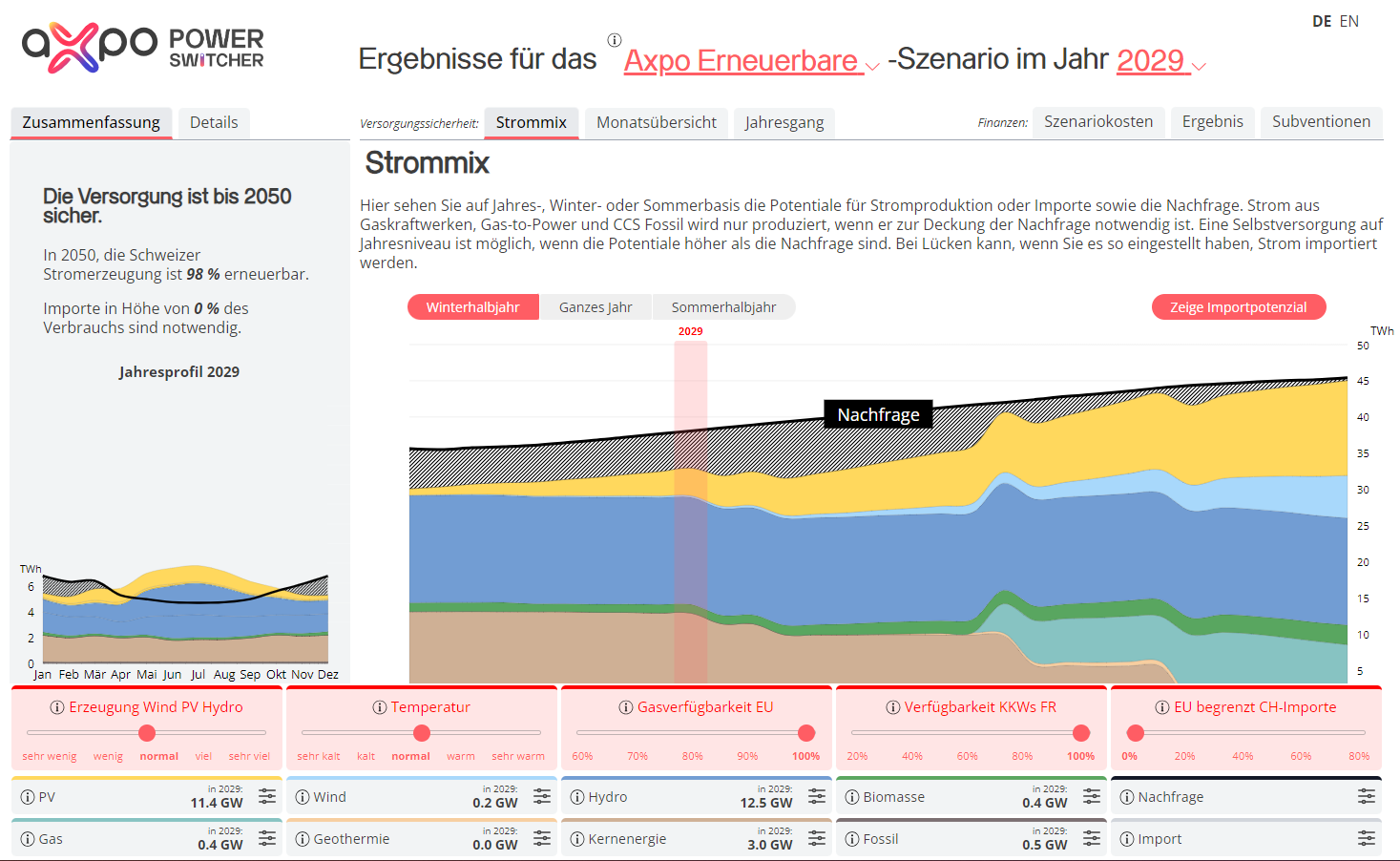Axpo achieves good operating result - Heavy loss caused by write-downs
18.12.2015 - Despite the difficult market environment, the Group's operating performance before special factors was encouraging in the 2014/15 financial year, due in part to the strategic measures introduced in 2014. However, the Swiss production business is still severely affected by the persistent low wholesale prices for electricity. Furthermore, the low euro exchange rate is causing problems for Axpo. This development necessitated renewed write-downs on the power plant fleet and on energy supply contracts, resulting in a heavy loss for the period.
The normalised operating income (EBIT) provides clear proof of the Group's good performance during the 2014/15 financial year (01.10.2014 - 30.09.2015). At CHF 575 million, despite negative currency effects and the continuing fall in wholesale prices for electricity, it remains substantial compared with the previous year (CHF 675 million).
Although Axpo fared well in operating terms, given the continued difficult market environment, overall it reported a loss for the year: the reported earnings before interest and tax (EBIT) came to CHF - 929 million in the 2014/15 financial year, compared with CHF - 838 million in the previous year. The reason for this were the special factors mentioned, as a result of the unavoidable write-downs and provisions totalling CHF 1.3 billion. The lion's share of the write-downs, which were announced on 14 September, is directly attributable to the currency-related drop in turnover.
As regards the net profit for the period, the write-downs resulted in a loss of CHF 990 million, compared with CHF 730 million in the previous year. Moreover, the cash flow from operating activities fell compared with the previous year from CHF 765 million to CHF 461 million. Net investments totalled CHF 699 million in the last financial year, producing a negative free cash flow of CHF 238 million. The Group's net financial assets declined from CHF 0.9 billion in the previous year to CHF 0.5 billion as at the end of September 2015. Liquidity from cash and cash equivalents and cash on deposit, totalling approximately CHF 3 billion, and the solid equity ratio of 32.1% remain positive.
Strategic milestones achieved - Cost savings taking effect
Axpo is assuming that the wholesale price for electricity will remain low in the next few years. This is due to the ongoing increase in the feed-in of subsidised energy in Germany in particular, the low price of CO2 certificates and coal, and the cautious economic outlook in Europe. Even a further drop in prices cannot be ruled out. In the face of this challenging market environment, it remains Axpo's primary strategic goal to secure liquidity and capital market viability for the long term and to increase profitability.
To do this, Axpo has to minimise and diversify the risks associated with its large production portfolio. This includes downsizing the power plant fleet and increasing sources of revenue that are not exposed to the electricity price risk.
The fact that Axpo was able to achieve the milestones set during the last financial year, with its strategy of optimising the core business, making cost savings, opening up new sources of revenue and establishing clear priorities for investments, is encouraging. The successful implementation of the cost saving measures, for instance, was a key factor in the solid operating result. Savings of CHF 91 million were made during the 2014/15 financial year, as part of the programme to improve earnings. Axpo is on track in this regard: the programme provides for Group-wide, annually recurring savings of CHF 200 million from the 2016/17 financial year onwards, to be achieved by creating more flexible, efficient structures.
Further expansion of profitable business activities abroad
Axpo has launched and implemented a number of activities aimed at tapping into new revenue opportunities. These include the acquisition of a stake in Portuguese energy provider Goldenergy, in which Axpo Iberia now has a 25% holding. The shareholding in the company, which supplies more than 250,000 customers with electricity and natural gas, substantially strengthens Axpo's position in Portugal.
In Italy, Axpo has already taken another step forward: here, the company achieved significantly higher sales in the last financial year of 5.15 TWh. The reason for this is the strong growth in the retail business, which is being continually expanded: Axpo Italy now has 177,600 points of delivery for electricity and gas.
Axpo will continue to push the business activities involving new energies: the expansion of the European origination business, mainly in the SME segment and the field of wind energy, is proceeding apace. In spring, for instance, a new branch office was opened in Amsterdam, from which the origination business in the Netherlands is to be stimulated. Axpo now has a direct presence in more than 25 European countries and is active in 35 markets. Through subsidiaries, the company markets energy from plants with a total installed output of around 12,000 MW for its customers, making Axpo one of the leading marketers of renewable energies from customer plants in Europe.
Business with international industrial customers was also expanded. Longer term electricity supply contracts were concluded with a number of customers - among them Germany's biggest aluminium smelter in Neuss - some of which have a term of up to 20 years. Axpo already currently supplies electricity or gas to the different European sites of more than 50 wholesale customers.
The move into the USA in 2016 will cast the net even wider in terms of geographical diversification, while also reducing dependence on the European electricity market and the Euro exchange rate.
Axpo's performance in international energy trading was recognised: for the first time, Axpo was named the world's leading power trading company by customers and market participants in a survey by the two specialist publications "Risk" and "Energy Risk".
Axpo is the number one in renewable energies
The renewable energies portfolio has grown significantly in the reporting year, chiefly in the wind energy segment. In July, Axpo announced its purchase of the wind farm developer Volkswind GmbH, which is active mainly in Germany and in France. Axpo is thereby expanding its business activities to include the construction and development of wind farms, in order to create higher added value.
In September, Global Tech I - an offshore wind farm with 80 plants off the German North Sea coast - was inaugurated. Axpo has a 24.1 per cent stake in this company. The total installed output of 400 MW supplies up to 1.4 billion kWh of electricity a year, which equates to the consumption of 445,000 households. Global Tech I is the first offshore wind farm in which a Swiss company owns a substantial stake.
As a result of the purchase of Volkswind and the inauguration of Global Tech I, the installed output owned by Axpo has increased to more than 400 MW. Meanwhile, Axpo is the largest Swiss producer of renewable energies, both in Switzerland and in Europe. The company has installed output (including hydro power plants) of around 4,000 MW in total.
Major progress with major projects
Progress was also made on the major projects: the project of the century, the Limmern pumped-storage power plant, is on the home straight and the first of four machine groups will be synchronised with the grid before the end of 2015. This CHF 2.1 billion project in the Glarus Alps remains within the cost and time budget.
At the Beznau nuclear power plant, three major projects to increase safety have been successfully completed. The installation of a new autarkic emergency supply system, a new plant information system and the preventive replacement of the reactor pressure vessel heads in both units took place as part of the annual overhaul. These technical and logistical challenges guarantee the safe operation of Beznau until 2030. Due to the irregularities affecting the reactor pressure vessel, unit 1 is likely to be out of operation until the end of July 2016.
In the geostrategically important Trans Adriatic Pipeline (TAP) project, initial preparations were made during the reporting year for the construction of the natural gas pipeline in Albania. The official ground-breaking ceremony is expected to take place next year. Equally significant was the awarding of the final planning permission by the authorities in Italy, meaning that the final big regulatory hurdle was overcome in May 2015.
- Financial Report 2014/15 View Send email Download
- Sustainability report 2014/15 (German) View Send email Download
- Presentation Andrew Walo, CEO Axpo View Send email Download
- Presenation Martin Schwab, CFO Axpo View Send email Download
- Media release View Send email Download
- Annual report 2014/15 View Send email Download
Axpo Holding AG
Corporate Communications




.jpg)





